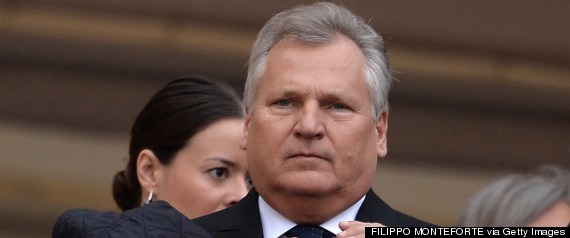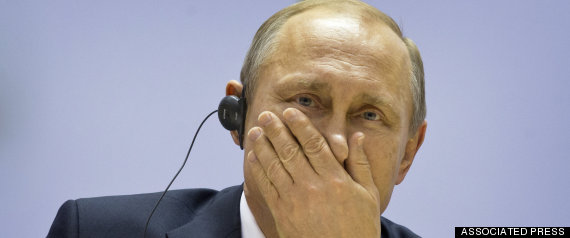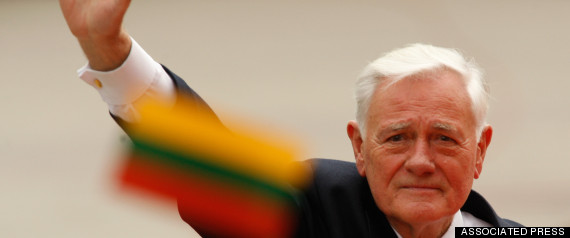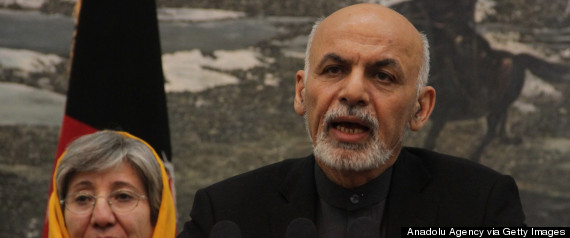WASHINGTON -- The Senate Intelligence Committee's intensely critical report on the CIA's torture program, a summary of which was released last Tuesday, isn't just a PR problem for the agency -- it's a liability for politicians all over the globe, because more than a quarter of the world's countries helped make the program possible.
The Senate report does not identify the countries that worked with the CIA, which represents a victory for officials with the agency and the White House. U.S. officials familiar with the negotiating process over the report's pre-publication redactions told The Huffington Post the intelligence community was afraid the countries' names would be released, with dire consequences for the future of U.S. diplomacy and for friendly governments.
The report does classify each CIA site by a color code that is easily broken once the report's accounts of what occurred at each site are compared with earlier revelations about the torture program. And 54 countries involved were already identified last year in a major report from the Open Society Justice Initiative, which drew together details from detainees' accounts and years of investigations, mainly in Europe, into the program.
This means opponents of the program can use the report's release to boost pressure on countries that either hosted sites where the torture methods were implemented or helped the agency transfer detainees to such sites.
Manfred Nowak, a retired special rapporteur at the United Nations who worked on the 1984 UN Convention Against Torture, told Bloomberg Businessweek earlier this week that the release of the report could prompt "a flood of litigation" against such countries.
He noted that the report added more proof to the claim that three European countries -- Poland, Lithuania and Romania --hosted secret CIA prisons or black sites.
Those three countries are party to the convention that established the European Court for Human Rights, which has proved itself willing to pass judgment on violations of human rights related to the CIA torture program. This past summer, the court ruled that Poland violated two CIA detainees' rights through its collaboration with the agency. The ruling represented the first time a court had held a European state accountable for its role in the program, according to a lawyer for one of the detainees.
The prospects of accountability for countries beyond Europe appear to be lower. Yet some of these countries face the risk of political backlash for their involvement in the program, particularly those home to strong anti-American sentiment. Critics of the report tried to prevent its release by saying it could spur protests abroad that could target Americans.
Global leaders reacting to the report are juggling a number of concerns. They must express some level of regret for the gruesome way in which, per the report, the CIA treated 119 detainees -- particularly if there is evidence that their country helped make that possible. Yet they also have to tread carefully given that the U.S. remains the chief global power, one many countries are desperate to have on their side.
The governments with the easiest job are those that are already combative toward the U.S. and can condemn it at leisure, disregarding how the torture program stacks up against their own, often deplorable human rights records.
What does this all look in practice? After the graphic, here's your run-down of how countries are choosing to react:
The 'Let The Biggest Bully In The Schoolyard Do What He Wants' Approach
The prime minister of Estonia -- a nation party to the European Court of Human Rights and closely tied to Lithuania, home to one of the black sites -- exemplified this reaction when asked about the report last week the Atlantic Council, a think tank in Washington.
"We don’t need to be telling the U.S. what to do and what not to do," Taavi Rõivas, the prime minister, said in response to a question from The Huffington Post.
He made the remark following an address in which he celebrated the U.S. role in defending Europe against Russian aggression and called the U.S. Estonia's "most important ally."

The Half Confession
Two former Polish leaders took this route the day after the Senate report was released.
Former president Aleksander Kwasniewski and former prime minister Leszek Miller acknowledged for the first time that they had permitted the operation of a secret CIA prison on Polish soil. The report shows that the agency gave the Polish government a significant payment after it showed reluctance to accept more detainees four months into the facility's operations.
Yet Kwasniewski made sure to retain some cover: He denied that he knew the CIA was engaging in torture at the site.

The Blame Game
For Washington's geopolitical rivals, a report from the U.S. government blasting a U.S. agency for human rights violations is perhaps the best Christmas present ever.
Russia, China and Iran -- frequent targets of U.S. human rights activism -- jumped on the report.
"The published data is the latest proof of crude systemic violations of human rights by US authorities," said Konstantin Dolgov, the human rights envoy for the Russian foreign ministry, in a Thursday statement. "Such a state of affairs does not mesh with the United States' claims to the title of a 'paragon of democracy."
The report comes at an important moment in the ongoing rhetorical clash between Russia and the West. A Russian media group that is closely tied to the Kremlin and runs the channel RT (previously Russia Today) recently launched a new outlet, Sputnik News, to promote Russia's perspective on international affairs.
Chinese media, too, seized the chance to repeat its argument that the U.S. is hypocritical on human rights.
A commentary published Dec. 11 by the state-run news agency Xinhua, which is widely broadcast in Asia and Africa, read, "The U.S. government loves to decorate itself as a vehement watchdog of human rights on the world stage. On too many occasions, U.S. troops, upholding their proud American flags, invaded countries which stood no chance against their cutting-edge weapons, just in order to shed "the light of civilization" to every corner of the world. It does not even need a discerning eye to see through that camouflage and realize that hegemony, instead of defending human rights, is the U.S. operating code."
And Iran's supreme leader, Ayatollah Ali Khamenei, called the U.S. government "a symbol of tyranny against humanity."
Both Xinhua's commentary and Khamenei's Twitter message also made reference to happenings in Ferguson, Missouri, where a white police officer who shot and killed an unarmed black teenager over the summer was not indicted. The U.S. has faced serious international criticism following the events of the summer and the lack of an indictment for the officer this fall.

'Let's Not Open This Can Of Worms'
Former Lithuanian president Valdas Adamkus made clear last week that though the report references a CIA black site in his country, it would not spur any revelations from his end about Lithunia's work with the agency.
"I was assured by top-ranking officials of our security agencies that there is no prison in Lithuania and that nobody ever delivered the prisoners," Adamkus told Lithuanian outlet BNS. "Until I see documents before my eyes about someone secretly bringing prisoners into Lithuania, I will stick to my position that there were no prisons or prisoners in Lithuania."
His remarks came even as the current leadership of his country demanded more details from the U.S. on the CIA's operations there. A Lithuanian parliamentary investigation that ended in 2010 found that the CIA ran a facility near the country's capital but said it could not confirm that any detainees subjected to torture were held there without cooperation from U.S. officials.
Various regimes in the Arab world were even more reluctant to come clean about their role in the CIA program. Nations like Egypt, Saudi Arabia, Jordan and Yemen have their own serious baggage on human rights, and may face pushback for being seen as working with the United States against suspects from their own countries -- so it is certainly not in their interest to demand more scrutiny on such issues.

'Never Again'
Afghanistan's new president, Ashraf Ghani, was in an especially delicate position, given that four of the CIA black sites were located in Afghanistan and that his country retains a dependence on U.S. forces for security.
Ghani held a news conference after the report was released to slam the CIA program. He vowed that he would never permit the U.S. or any foreign organization to establish prisons or capture suspects in Afghanistan.
Addressing a nation that had seen hundreds of its own residents subjected to CIA torture and other ill treatment at American hands, Ghani added, "We are entering an era of national sovereignty where we will be the only legitimate authority and no one else.”



